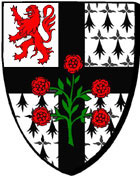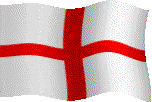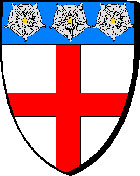
Encyclopédie Marikavel-Jean-Claude-EVEN/Encyclopaedia/Enciclopedia/Enzyklopädie/egkuklopaideia
 |
|||

Angleterre Bro Saoz |
BROUGH on Humber Petuaria |

Yorkshire Bro-Evrog |
![]()
| pajenn bet digoret e 2002 | page ouverte en 2002 |
* forum du site Marikavel : Academia Celtica |
dernière mise à jour 21/07/2025 15:59:35 |
![]()
| Définition / Displegadur : Ville d'Angleterre, comté de
Yorkshire.
Capitale britto-romaine de la civitas des Parisii, au fond de l'embouchure du fleuve Abus / Humber, à l'endroit de passage de la route Ermine Street allant de Lindum / Lincoln en direction d'Eburacum / York et le nord de l'Ile. |
|
![]()
|
i
Extrait de : Map of Roman Britain; Ordnance Survey |
![]()
|
Histoire / Istor : Il semblerait que le site de Brough lui-même ait été occupé par un simple village à l'âge du fer, faisant déjà suite à une implantation bien plus ancienne. S'il y a eu une forteresse bretonne, elle n'aurait pas été sur le site de Petuaria / Brough elle-même. Toujiurs est-il que le secteur a été investi par les légions romaines vers 70, lors de leur avancée en territoire brigante. Il est probable que le site de Petuaria, à l'endroit de passage de la route Ermine Street vers le nord, doive son existence à un camp de la Legio IX Hispania, peut-être même plus précisément à la quatrième cohorte de cette légion (hypothèse). Par la suite, Petuaria a suivi les vicissitudes de la province romaine Britannia Secunda, qui avait Eburacum / York pour capitale. A la fin du IVè siècle, la Notitia Dignitatum nous fait savoir que Petuaria servait de base à une unité de réserve ou d'arrière garde (du système de défense du Mur), sous les ordres d'un préfet. Il ne semble pas que le nom de la ville ait été désigné sous le préfixe castrum, et c'est probablement pourquoi il n'apparaît pas non plus sous une forme en Cair-, Kaer-. Le secteur tombe sous la coupe des Angli / Angles vers 550. Le premier roi angle a été Aelle. |
|
* I.A. Richmond. Roman Britain. 1955-1973. p. 80 : " ...But the Humber crossing at Brough (Petuaria) was garrisoned until the early second century, and only then became the seat of the tribal capital, still described in the middle of the second century A.D. as a vicus, or village-community. The significance of this appears in its name, which in Old British means "fourth". There were thus at least four such centres within the tribe, a development closely comparable with that described by Strabo as obtaining among the allied Gallic tribe of the Allobroges. They lived, he states, 'in village communities', and adds that the village which was their governing centre had been embellished so as to become a city. The comparison is illuminating, the more so since Petuaria grew into existence, like some townships of Roman Germany, out of the village outside a fort. The inscription which mentions the vicus of Petuaria records the erection of a theatre-stage by an aedilis, or junior principal magistrate, and this implies some degree of civility. But the place never grew into a town. Another aspect of the picture is afforded by the tribal countryside. The houses of farming estates on the Yorkshire wolds early became Roman in build but their owners mainly eschewed all Roman amenities until the third century A.D., preferring the ways of their forefathers consolidated, as it were, but little moderated. Here, then, is an area where Romanization came late precisely because the inhabitants, using their freedom of choice, had held aloof from the brave new world". |
![]()
|
Étymologie / Gerdarzh A. Petuaria. Rivet & Smith : - Ptolemy II,3,10 : Petouaria ( = PETUARIA), la ville des Parisi. - Inscription : RIB 707, dédicace du théâtre de Petuaria : AEDILIS VICI PETU(AR(IENSIS), vers 140-44. - Ravenna : 10715 : DECUARIA - N.D Xl31: Praefectus numeri supervenientium Petueriensium ... DERIVATION. The name is a feminine of British *petuario- 'fourth' (Welsh pedwerid (pedwyr-yd), based on *petor- 'four', in compounds petru-, cognate with Latin quattuor. The element is found abroad in the place-names Petromantalum AI 3825, 38410 'four roads, crossroads'; Pedeverius (A.D. 979) perhaps for earlier *Petuarios > Pithiviers (Loiret, France) ; and in the ethnie names Petrucorii 'four hosts' (BG VII, 75, etc.) > Périgueux (Périgord, France), Petranioi at Lamas de Moledo (Pontevedra, Spain; ELH 1. 120). For the formation Petrucorii Whatmough DAG 402 compares Tricorii, Tetrapolis, Novempopuli, etc. The suggested sense of Petuaria is, then, 'fourth (part) ', the Parisi being perhaps divided into four pagi; for a discussion of thesimilarly organised Petrucorii, see C. E. Stevens in his chapter 'Roman Gaul' in J. M. Wallace-Hadrill (ed.), France (2nd ed. 1970), 22. See urther on the ordinal forms of '4' in Celtic E. P. Hamp in BBCS, XXII (1974-76), 309-11.IDENTIFICATION. This is usually taken as Brough-on-Humber, Yorkshire (SE 9326), and if the Praetorio of AI 4665 (Iter I) is accepted as a corruption of the name this is the easiest identification, since the roads lead there; see discussion in Chapter IV, p. 156. However the most recent excavator of Brough, J. Wacher (in The Towns of Roman Britain (London, 1974), 394-97), points out that the occupation of the place seems always to have been military and naval rather than civil and suggests that the Vicus Petuariensis may have been located not at Brough itself but some three miles downstream at North Ferriby; the stone bearing RIB 707 was not found in situ but re-used in a fourth-century building in the naval base, and the theatre referred to has not been identified. There is also the vexed question of the town's status. Unless the C in the left side-panel of RIB 707 can be taken to imply a P in the missing right side-panel, thus giving C(ivitas) P(arisorum), there is no evidence that Petuaria was the capital of the Parisi, nor that the civitas, as opposed to the individual vicus, had a fully romanised form of government. It is, therefore, uncertain whether the place was ever known as Petuaria Parisorum. ----- Commentaire JCE : L'acceptation de la plupart des auteurs repose sur l'idée que Petuaria désignerait une "quatrième" part de la cité bretonne des Parisi, hypothétiquement subdivisée en plusieurs districts. Celui-ci aurait été identifié sous celui de quatrième. Mon opinion : sans contester cette hypothèse sur le fond, je propose tout de même d'y voir peut-être la quatrième cohorte de la Legio IX Hispania, chargée de la défense du passage de la rivière à cet endroit. ******* B. Brough. - Burg, c. 1200 YCh 1829; Burgh on Humber, 1239 Ch. Vieil-anglais Burh = forteresse, fortification. |
![]()
Sources; Bibliographie / Eien; Levrlennadur : * I.A. Richmond : Roman Britain. Penguin Books. Harmondsworth, Middlesex, England. 1955-1973 * Eilert Ekwall : The concise Oxford Dictionary of English Place-Names. Clarendon Press. Oxford.1936 / 1980. * A.L.F Rivet & Colin Smith : The Place-Names of Roman Britain. Batsford Ltd. London. 1979-1982; - envoi de Humberside County Council, 28 octobre 1982 - A.D Mills : A Dictionary of Brirish Place-Names. Oxford University Press. 1991 - 2003 |
![]()
|
Liens électroniques des sites Internet traitant de Brough-on-Humber / Petuaria : * Site communal : (1) Facebook : Elloughton cum Brough Town Coucil Pour les fouilles du théâtre : Petuaria revisité : à la recherche du théâtre romain perdu de Brough-on-Humber – Le passé Inscription romaine :www.romaninscriptionsofbritain.org/inscriptions/707 * Wikipédia anglais : Brough, Yorkshire de l’Est — Wikipédia * Wikipedia brezhonek : (e-barzh Yorkshire) : https://br.wikipedia.org/wiki/Yorkshire * forum du site Marikavel : Academia Celtica * Autres pages de l'encyclopédie Marikavel.org pouvant être liées à la présente : http://marikavel.org/heraldique/bretagne-familles/accueil.htm http://marikavel.org/broceliande/broceliande.htm * solidarité nationale bretonne avec le département de Loire Atlantique : Loire-Atlantique * sauf indication contraire, l'ensemble des blasons figurant sur cette page ont été dessinés par J.C Even, sur bases de GenHerald 5. * Introduction musicale de cette page : Bro Goz Ma Zadoù, hymne national breton, au lien direct : http://limaillet.free.fr/MP3s/BroGoz.mp3 hast buan, ma mignonig, karantez vras am eus evidout go fast, my little friend, I love you very much |
![]()